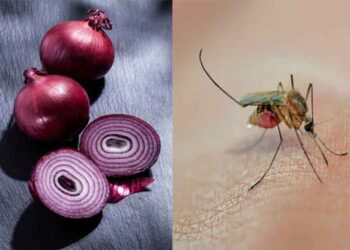
If you are experiencing skin irritation or a burning sensation from your mosquito net, there are several treatments you can try to relieve the discomfort. Though not a common occurrence, a small percentage of people may experience skin irritation, itching, redness, or a mild burning sensation.
Most people who experience a burning skin sensation or skin irritation following exposure to mosquito nets may also be allergic to chrysanthemum (ragweed) and turpentine. These substances should be avoided as well.
However, mosquito nets particularly those impregnated with insecticides are effective preventive measures against malaria, a global childhood killer that causes significant morbidity to both children and non-immunized adults. Hence, the use of mosquito nets is highly recommended.
Though generally considered safe for children, adults, and pregnant women, few people may report experiencing certain skin symptoms following the use of insecticide-treated nets (ITNs).[1]Safety of pyrethroid-treated mosquito nets – PubMed And if you are one of such special individuals, you will hereby see how to treat burning sensations from mosquito nets. You will also see why mosquito nets cause skin irritations and how you can prevent it.
Why Use Mosquito Nets
The World Health Organization (WHO) has approved the use of mosquito nets, preferably the long-lasting insecticide-treated net (LLITN), for the prevention of malaria globally. It is cheap, safe, effective, and readily available. The health organization, in collaboration with international donors, also provides free insecticide-treated mosquito nets to children and families in most malaria-endemic countries.
In 2021, the WHO reported 247 million malaria cases and 619,000 deaths; among which 77% were under-five children. This supported the statistically evident statement that one child under the age of five dies of malaria nearly every minute.[2]Malaria – World Health Organization
While the female Anopheles mosquito is a notorious species in the transmission of malaria, several other mosquito species cause diseases in humans. Aedes causes Dengue, Zika, Chikungunya, and Yellow Fever, while the Culex mosquito causes West Nile fever, Japanese Encephalitis, and Lymphatic Filariasis.
Due to the above health consequences of mosquito bites and the proven effectiveness of mosquito nets in preventing mosquitoes and the diseases they cause, the importance of using mosquito nets cannot be over-emphasized.
What Causes Burning Skin Irritation From Mosquito Nets?
Insecticide-treated mosquito nets cause burning skin irritation in people allergic to the pyrethroid chemicals often impregnated in the mosquito nets. Pyrethroids are the only insecticide classes currently recommended by the WHO for bednet impregnation because of their effectiveness, low toxicity to humans, and high exciton-repellent effects on mosquitoes. Common pyrethroids used as insecticides include Permethrin, Allethrin, Deltamethrin, and Cypermethrin, etc.[3]Pyrethroid and Carbamate Resistance in Anopheles funestus Giles along Lake Kariba in Southern Zambia – PMC
These chemicals kill mosquitoes by blocking sodium-gated nerve channels on the mosquitoes resulting in their death at doses as low as 0.5%. The mosquito nets are impregnated with 2% permethrin in combination with 1% piperonyl butoxide (PBO) to augment its efficacy. The nets are designed to offer protection for several years (3-5 years) by slowly releasing the insecticide over time, and ensuring that it remains effective against mosquitoes even after multiple washes.[4]Bioefficacy and durability of Olyset® Plus, a permethrin and piperonyl butoxide-treated insecticidal net in a 3-year long trial in Kenya | Infectious Diseases of Poverty
At such low concentrations of permethrin, most people would not experience any skin sensation or reactions. However, few people experience a burning sensation following contact with pyrethroid-treated mosquito nets (particularly those who have sensitive skin or are allergic to pyrethroids and chrysanthemums). Other side effects include headache, burning sensation in the eyes, and nausea. However, these are very rare.[5]Treated mosquito nets are safe and effective | WHO | Regional Office for Africa

Best Treatments for Mosquito Net Burning Skin Sensation
If you happen to be among the few people who experience a burning skin sensation or burning sensation around your eyelids, it can be very distressing even though it resolves on its own. But if you want some faster relief to the burning skin sensation, here are the best and easily available interventions you can use.
1. Wash the affected skin with soap and water
As part of first aid, decontamination is a general first step for contact-related skin chemical exposure. This involves interventions aimed at reducing the concentration of chemical toxins on the skin. Washing the affected areas with soap and water is a great way to remove some of the chemicals causing the burning sensation on the skin.
2. Apply natural oils or vitamin E oils
Washing with soap and water will at best remove the excess unabsorbed pyrethroids on the skin. The absorbed chemicals may remain in the skin pores and continue to cause skin irritation. Thus, if the burning skin irritation persists after washing with soap and water, applying natural oils like palm oil, olive oil, or vitamin E oil does the trick.
Natural oils are good solvents for organic chemicals like pyrethroids, thus helping to dissolve and adsorb the chemicals and providing relief to your skin. Vitamin E, which is also found in natural oils, has anti-oxidant properties which can help mop up free radicals, reduce inflammation, and soothe the skin.
- Apply any natural oil or vitamin E oil to the affected skin surface.
- Leave it for a few minutes (3 to 5 minutes) without rubbing on the area too vigorously.
- Then, wash off again with soap and water. It will feel much better.
A young Nigerian lady shared her ordeal with a burning skin sensation from a mosquito net. She mentioned trying several recommended home remedies like oily gels, aloe vera, oil, powder, and oatmeal. According to her, the burning sensation didn’t subside and it became even worse when she applied oatmeal.
As discussed above, natural oils can provide relief to a burning skin sensation following contact with an insecticide-treated net by adsorbing already absorbed chemicals and providing anti-oxidant effects. To enhance their soothing effect, avoid using hot oils or rubbing vigorously on the affected area to avoid friction heating which can worsen the burning skin sensation from the mosquito net.
3. Apply topical corticosteroids
Topical corticosteroid creams can help reduce burning skin sensation after skin contact with permethrin or pyrethroids. They are anti-inflammatory agents that can be used in the treatment of allergies, including allergy to permethrin or chrysanthemum.[6]Insecticides and the skin – Dermnetnz
Apply an adequate amount of topical corticosteroid cream on the affected area and leave it to absorb for a few minutes. This should provide immediate relief to your burning skin sensation from the use of a mosquito net. This can be the next step if washing with water and applying natural oils does not provide significant relief to the mosquito net burning sensation.
However, long-term use of corticosteroids whether topical or systemically is not recommended. If you are going to use it for a long time, you should see your doctor regarding how to use it.
4. Oral anti-histamines
Anti-histamines are anti-allergy medications. They block histamine receptors, preventing the action of histamine during allergic reactions.[7]Antihistamines – StatPearls – NCBI Bookshelf
Histamine is a principal cytokine in the mediation of allergies. Therefore, if your particular burning skin reaction in this case of mosquito net use is due to an allergy to pyrethroid, chrysanthemum, or related substances, oral anti-histamines may help.
The drawback of oral antihistamines is that they take a long time to start acting. Mosquito net-induced burning skin irritation usually resolves spontaneously after a while. Thus, the skin sensations may have subsided on their own even before the oral antihistamines started to work.
This should be used if the reactions last longer than necessary, and for most people, it shouldn’t last longer than 2-3 hours.
5. See a doctor
For every medical condition, it is always important to see a doctor after initial first-aid interventions do not provide a lasting solution to the problem. If a burning skin sensation persists after you have tried the above homemade interventions and over-the-counter treatments, see a doctor without delay.
Skin irritations to insecticide-treated nets are usually mild but if the burning skin sensation becomes widespread and severe, affecting other parts of the body that were not primarily in contact with the chemicals, that’s a sign you should see your doctor immediately.
How to Prevent Burning Skin Irritation From Mosquito Nets
After having treated the burning skin irritation following contact with an insecticide-treated net, it is important to prevent it from recurring. Here are ways you can prevent a repeat experience of burning skin irritation from mosquito nets.
1. Properly air-dry mosquito net before use or reuse
When using your mosquito net, it is important to follow the manufacturer’s instructions to prevent skin irritation. Spread under a windy shade for at least 24 hours before the first use. This is to ensure that the impregnated chemicals dry on the net fabric without leaching onto the skin.
2. Prevent contact with your skin
There are many ways you can prevent skin contact with permethrin-treated mosquito nets. This involves creating a physical barrier between your skin and the insecticide-impregnated mosquito nets while they still function in preventing mosquito bites.
Some sources have proposed the use of oily lotions in creating a skin barrier against the chemicals on the mosquito nets but more effective barrier options would involve wearing clothes that cover exposed skin or creating demarcations that prevent you from moving into contact with the mosquito net while you sleep.
3. Use non-treated mosquito nets
Though not as effective as insecticide-treated nets in the prevention of mosquito bites and consequently malaria, they are highly effective when used correctly.
Lastly, the definitive approach to preventing contact with the mosquito net is by using non-treated nets instead. While these do not offer any chemical barriers, they can still prevent mosquito bites if used adequately.
4. Use alternative interventions
If you persistently experience burning skin irritation after using mosquito nets, you might want to consider using alternative methods of preventing exposure to mosquito bites, and in turn malaria. These include the following:
- Mosquito coils, vaporizers, and insecticidal sprays.
- Topical mosquito repellants e.g., DEET, IR3535, or Icaridin-containing creams can be applied directly to the skin.
- Protective clothing, thick stockings, and headgear.
Take home
Insecticide-treated nets (Long-lasting insecticide-treated nets) are effective methods of preventing mosquito bites and their associated diseases, especially malaria.
Permethrin is the only insecticide approved by the WHO for mosquito net impregnation but it has a rare side effect of causing a burning skin irritation which can cause significant discomfort.
Even though this skin irritation may subside spontaneously over 2-3 hours, this post explores interventions that can provide immediate relief to the burning skin sensation experienced following the contact.
Have you or do you know anyone who has experienced this kind of burning sensation from mosquito net? Share with us how you got relief from the burning skin irritation following the use of LLITN.

















Nice write up but I think this has happened to me since childhood, anytime I use this type of net I’ll feel that hot spice burning in my face like right now since I woke up by 10am. It’s now 12pm n burning. Can’t seem to find a cure
Hello, Succesful
I’m so sorry to hear that. If you tried any of the above tips, it might help. However, the reactions should stop any moment.
Sorry about the whole thing.
Hello. I love your content. My whole face is burning up right now. But I want to try your method and see
Thank you.
Sorry to hear that.
Please, don’t forget to let me know after trying it.
Good job @author what works almost instantly for me was an activated charcoal mixed with little palm oil applied on the area. Itching stops few minutes later following a hot sensation.
I got into contact with a treated mosquito net but I tell u this is one worst skin irritant ever I feel like am on fire already and I can’t access the creams at this time 😭